This post is part of the Queer Film Blogathon currently being hosted by Caroline at Garbo Laughs to celebrate gay pride month. The aim of the blogathon is to examine films that feature “lesbian, gay, bisexual, trans, or otherwise non-heterosexual, non-gender-binary depictions or personages in film.” For an overview of queer film theory, click here.
The film I’d like to focus on is David O. Selznick’s adaptation of Daphne DuMaurier’s Rebecca (1940). Many scholars of queer film theory have written of the relationship between Manderley’s mysterious and frightening Mrs. Danvers (Judith Anderson) and the ghostly but ever-present Rebecca. Rhona J. Berenstien notes that the horror genre is “a primary arena for sexualities and practices that fall outside the purview of patriarchal culture, and the subgeneric tropes of the unseen, the ghost and the haunted house…Portraying lesbians as ghosts in Hollywood movies is, then, directly linked to cultural attitudes and anxieties about homosexuality. The lesbian is a paradoxical figure; she is an invisible–yet representational–threat.”
As Lily Tomlin explains in the 1995 documentary The Celluloid Closet, gay characters have been on the screen since the birth of cinema. However, after the enforcement of the Production Code in the 1930s, many of these characters took on a new identity: that of the “cold-blooded villain.” This is certainly the picture that is painted of Mrs. Danvers in Alfred Hitchcock’s film. One scene in particular stands out. The second Mrs. DeWinter (Joan Fontaine) has been tormented by both constant reminders of her new husband’s recently deceased first wife and her chilly, intimidating interaction with Danvers. Mrs. DeWinter decides to explore the forbidden East wing at Manderly that Rebecca and Maxim occupied before Rebecca’s death. She finds herself in Rebecca’s bedroom and suddenly Danvers is right there behind her. The housekeeper takes Mrs. DeWinter around the room, revealing her lingering obsession with Rebecca–rubbing the sleeve of one of Rebecca’s fur coats against her cheek, telling Mrs. DeWinter how Rebecca liked her hair brushed, showing her Rebecca’s underwear drawer where her lingerie is kept neatly folded. Finally, Danvers beckons Mrs. DeWinter over to Rebecca’s four poster bed where she shows her a black mesh negligee that belonged to Rebecca. “Have you ever seen anything so delicate?” inquires Danvers. “Look, you can see my hand through it.” Although this scene can be read as one of the climaxes of Mrs. Danver’s madness in this gothic story (she tries to convince the younger woman that her husband still loves Rebecca and that she will never be able to live up to the dead woman’s memory), when doing a queer reading of the film, this is strong evidence to suggest that Mrs. Danvers is a lesbian. More than that, Mrs. Danvers is portrayed as a wraith; a sexual predator who is out to make Mrs. DeWinter her next victim. Mrs. DeWinter’s fearful and timid reactions, paired with the creeping music, make this a sinister scene.
Joseph Breen, head of the Production Code, sent a strongly worded message to David O. Selznick explicitly forbidding any suggestion of a relationship between Mrs. Danvers and Rebecca. Berenstein quotes directly from one of these letters in her article: “If any hint of this creeps into this scene, we will of course not be able to approve the picture.” Yet all of these things made it in to the final cut, regardless.
Under the Production Code, any character acting in a morally unsuitable way must be punished. Because Mrs. Danvers is represented as a monster (a “female Frankenstein” as Berenstein calls her), she must die like one in the end. As Max and his wife drive back from the inquest into Rebecca’s death, they find Manderley engulfed in flames. Presumably it was Mrs. Danvers who started the fire. One of the last shots of the film shows Danvers in Rebecca’s bedroom, looking out the window as the house burns around her.
Mainstream audiences in 1940 may or may not have read the film version of Rebecca as having anything to do with homosexuality, but it is likely that gay and lesbian audience members of the time viewed films in hopes of catching glimpses of LGBT people represented on screen. Although it is horror/melodrama, and the characters in question are represented as evil, I think Rebecca is a film that definitely delivers in the queer subtext department.

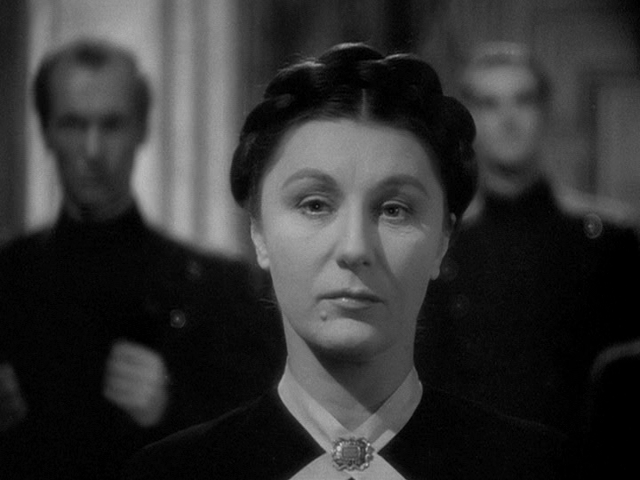
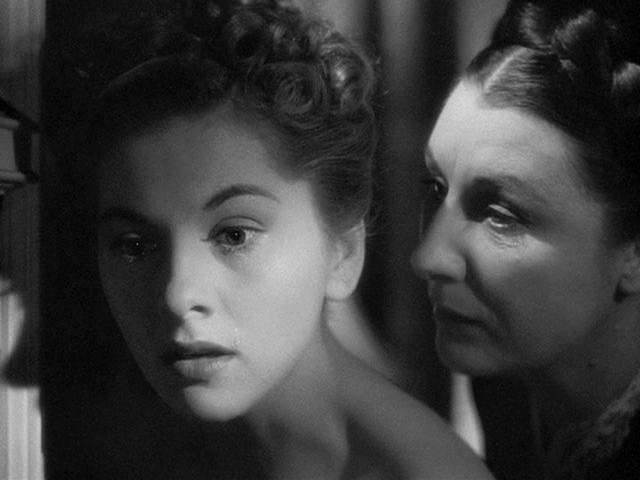
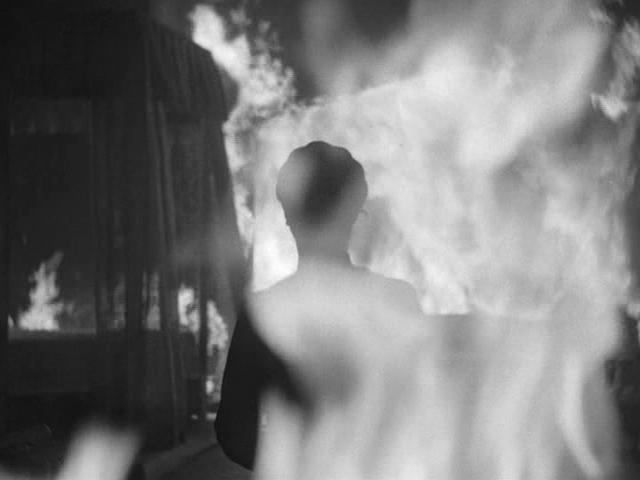
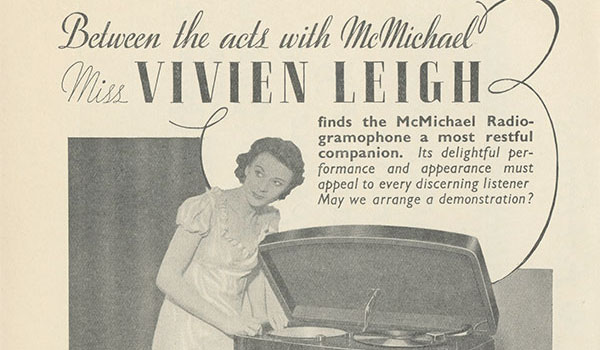
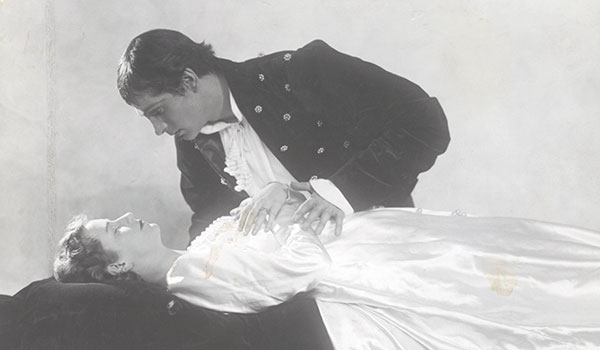
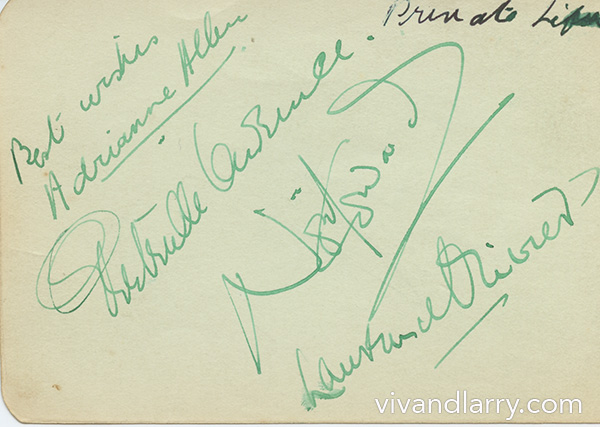
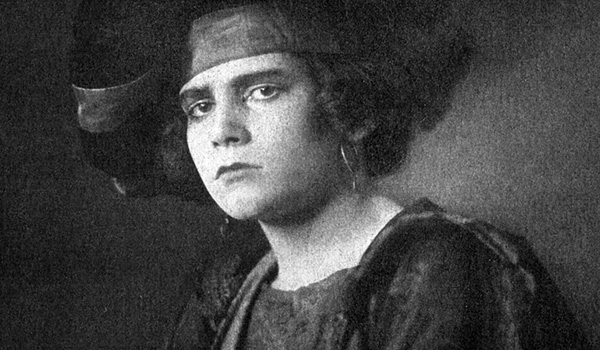
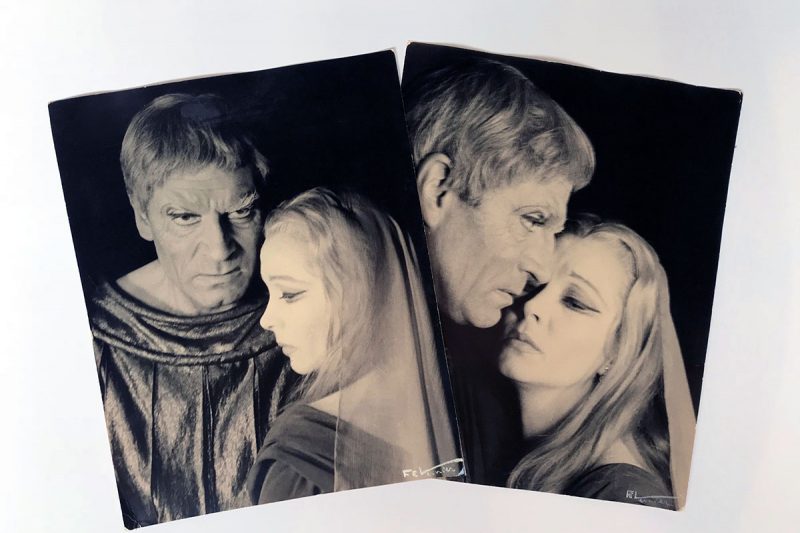
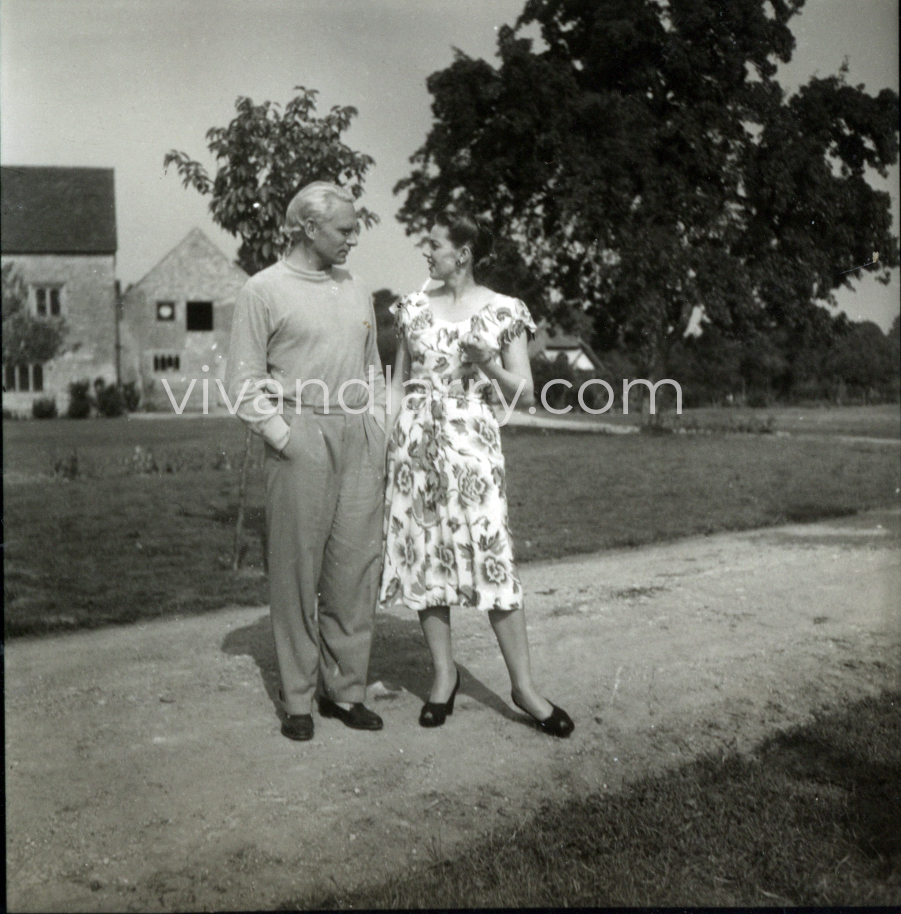
Interesting. I have heard this theory before but that Rebecca and Mrs. Danvers actually were lesbian lovers, which I doubt. I think Mrs. Danvers was indeed gay and was just obsessed with her.
And whenever I have seen this film my brain always pictures Vivien as the unseen Rebecca!
That’s why films are open texts to be read in different ways by different audiences. There is no one correct answer. It is never stated in the book or the film that Mrs. Danvers and Rebecca had an actual sexual relationship, but when read as a queer text, there is plenty of evidence to support the theory.
Hitchcock also saw Vivien as the unseen Rebecca. He said “but Rebecca never appears in the film, so neither does Vivien.”
Interesting entry. I never really saw Mrs. Danvers as a lesbian but more as someone who is obsessed with Rebecca. Sexually? Maybe, but I never saw her as a lesbian — probably closer to those people who identify as “straight” but is devoted to only one person emotionally/sexually to someone of the same gender. Nevertheless, it was fun to read this! I’m pretty new to queer film theory although finding queer elements/subtexts is pretty fun in films!
Like I said above, it is never stated that she is a lesbian either in the book or the film. She could just as easily have been just an obsessive, crazy person. Under the Production Code, “perverted” relatioships, as Joseph Breen called them (oh, the 40s), couldn’t be done anyway, but when reading this film (and plenty of others of the same era) in a certain vein, you can find subtexts that support the idea. It seems like Joseph Breen certainly picked up on the subversive undertones. What’s cool about films is that they can be interpreted differently by different people!
Oh no, I completely agree with you, which is why I also stated my own opinion about my interpretation of Mrs. Danvers. I was just saying that I don’t agree with how queer film theory would interpret Mrs. Danvers but I wasn’t saying that how various film theorists/theories/people who view Mrs. Danvers a certain way are right and wrong. That’s why I own a film blog too because I know that anyone could state their opinion about a film! I think any film could be read a certain way when you view it through a certain lens — I think that’s why so many film historians and theorists right about how Marlene Dietrich’s own sexuality pervaded even her film characters because they choose to use Dietrich’s sexuality as the starting point for their argument.
I hope that my comment didn’t seem like I was attacking you in any way because I wasn’t 😉
Haha, nah, I didn’t think you were attacking in any way 🙂 I haven’t read anything about marlene Deitrich, but you’re right–any film can be read a certain way when examined under a certain lens! I think Rebecca gives good enough evidence to support the queer theory. I don’t remember whether I just thought her a bit scary when i first saw the film, but once I heard the theory that she could have been interested in Rebecca as more than employer and employee, I totally saw that they meant, lol
This is very interesting. Haha I never even thought about it! After reading everyone’s reviews I think, “Man I’m naive and haven’t been picking up on most that in this film.” haha
I know none of it has been proven or said right out, but I agree it certainly is possible. It was most likely elluded to so that readers/audiences would be kept wondering and guessing.
Reading this made me actually think of the Ray Milland movie “The Uninvited” where Cornelia Otis Skinner was infatuated or had some sort of relationship with Gail Russel’s dead mother. Skinner had a big portrait of the dead woman in her office and would talk to it.
It’s funny you mentioned The Uninvited, because that’s the other film Rhona Berenstein examines in her article! I haven’t seen it, myself.
I agree with the queer reading of the film (and novel) of Rebecca; Danvers’ obsession with her late employer definitely has a lesbian tinge. Queer coding also appears in other Hitchcock films (e.g., Rope, Strangers on a Train, North by Northwest), so Hitch was no doubt quite aware of the implications in the Danvers/Rebecca relationship. Apparently, Daphne DuMaurier, the author of the novel Rebecca, also had love affairs with women and was probably cognizant of the subtext between Rebecca and her housekeeper (in the novel, there’s also a coded suggestion that Rebecca herself may have had lesbian affairs). A fascinating book to read on the intersection of homosexuality and horror films is Harry M. Benshoff”s “Monsters in the Closet: Homosexuality and the Horror Film.”
I agree. If it was in the original script that was seen by Joseph Breen (as apparently it was if he was commenting on how that sort of thing wouldn’t be allowed), Hitch and Selznick must have been aware of it. It seems Hitch was quite fond of finding subtle tricks in order to bypass Production Code rules. I’m thinking of the famous kissing scene between Cary Grant and Ingrid Bergman in Notorious.
Thanks for the book rec!
I’d go along with the lesbian interpretation of Mrs. Danvers, although I agree that the Production Code made it necessary to leave the exact nature of Mrs. Danvers’s feelings for Rebecca ambiguous. I didn’t get the ideal that her feelings were returned but more likely just exploited by the vain and selfish Rebecca. (No reason for this–just a feeling.) The great thing about ambiguity under the Code is that, while not confirming the gay interpretation, it doesn’t rule it out either. Clues include that scene in the bedroom where Mrs. Danvers describes Rebecca and her bedclothes in such a dreamy way as to make them almost an erotic fetish, the time she says Rebecca called her “Danny” (!), and the casting of the very butch Judith Anderson in the part.
Haha, I don’t think I’ve ever really thought of any classic film actor as “butch”
According to the World Almanac of Bosh, Hitch had sex w Alma — uh, at least once. (I publish the Almanac, so I know). There’s hs. in Rebecca and Rope and Strangers on a Train. That’s a lot for someone (ie Hitch) who claimed Huhhh? Btw, Rebecca author Daphne duMaurier, in a bio, is revealed to have ‘completed’ pash w musical star Gertrude Lawrence in the ’40s.
Fantastic article, I am interested in the context that surrounds your article; in particular the queer theory slant on the film/novel ratio. I am currently undertaking an MA dissertation on du Maurier’s Rebecca and would love to know where to locate the original quote from Breen to Selznick?? Any sources would be fantastic.
I have recently completed a paper on ‘Re-reading Du Maurier’s Rebecca through Eve Kosofsky Sedgwicks’ ‘Queer Lens’: Bisexual Desire as Fatal to the Tradition of the Gothic’ and would love to include some film theory on the matter.
Fantastic reading!
Stacey.
Hi Stacey, I’m fairly certain the author pulled the quote from the production Code files for Rebecca which are housed at the Academy of Motion Pictures Arts and Sciences in Los Angeles.
Your paper sounds really interesting. I’m currently writing my MA dissertation, as well, at King’s College. Where do you study?
In my personal view of both the film and the novel, Rebecca is potrayed as the Goddess character. In what many religions view as pagan, ancient religions and time periods dating back as far as 500 BC(around the time of the Sumerian civilzations) celebrated the goddess who resembled carnal desires and fertility. In many rituals, which are often seen as Satanic, were celebrated in orgies and climaxies. Both men and women could take part in them, however it is all about the women. When monotheistic religions have impacted the world, they deemed them unholy and obviously Satanic. In Victorian Times, women were potrayed in three ways. Two were deemed good: virgin or married woman with children. The other who is independent is classified as a whore. Rebecca is the goddess because there are sexual undertones, however it does not mean (sexual) orientation on her part. For her, sex is power and control, not just pleasure and excitement. The reason why Maxim and some of the men(such as Frank and Ben) were aware of her manipulative nature was because they resemble in their owen ways traditional values. If you look at other stories such as John Buchan’s “Grove of Ashtaroth”, there are indications the only way to resist the Goddess is to destory her. That is why for Maxim, Rebecca had to die. (Of course she had cancer and cunningly tried to kill two birds in one stone, die a fast death and punish Maxim by sending him away for her murder). Mrs. Danvers is the one who is classified as the lesbian, to Rebecca she too is a pawn. It is a vague proof to my theory, however when Mrs. Danvers discovers she had cancer, and yet did not tell her, it does show Rebecca was not true to her and that is why in my view is another reason why she set Manderley. “Heaven has no rage like love to hatred turned/ Nor hell a fury like a woman scorned.” by William Congreve
I had to read this book my senior year of English, and we really dissected it and I do believe that she and Rebecca has homosexual relations. Although Danvers practically raised her and her cousin, Favell, if you read the book, certain dialogue may very well indicate that she and Rebecca were indeed “involved.” For example, she said at one point that Rebecca slept with several men, but was never happy with their attention. She didn’t like men, but in fact despised them. Danvers was the only person she ever really loved. Danvers also at one point referred to Rebecca as “my girl,” which could mean a number of things, depending on your outlook. I’m not saying it was completely certain, but it is a large possibility, although it is highly disgusting. We will never really know the truth, however, because in this day and time, homosexual relationships, more-so with women, were not seen positively. The only one who really knows is Du Maurier herself.
Hahaha – I agree with the analysis (possibly because I just finished watching the film on TCM & was googling to see if anyone else noticed the subtext). Neat site, btw. Throughout the second half of the movie, I was like, “wait…. Are they saying what I think they are?” The description Maxim makes about Rebecca, implying she was loose and would hang out in London with her “friends” (highly derisive emphasis by him on that last bit) – the character struck me as more than cuckolded, but emasculated by her affairs. Then when mentioning that creepy cousin, it seemed the character Maxim wanted to emphasize how perverted he thought her.
The clincher, though (aside from her wistful and uncharacteristically giddy description of putting Rebecca to bed) was when Danvers had the outburst to the inquest blackmail meeting that THEY never loved/knew Rebecca as she did. I’m not gay & may not possess a “queer eye,” but I am a woman & the line was delivered like a woman in love beyond obsession.
It all seemed so obvious to me – especially contrasted with the openness of pre-code handling of all manner of sexuality – that Danvers and Rebecca were lovers when Rebecca wanted to, and that Rebecca had toyed with Danvers’ heart. I love your analysis, though of her needing to be portrayed as dark and malevolent b/c she was gay. It’s hateful that Hollywood made being gay on par with being evil- I’d not recognized it till I read this, but absolutely can see it looking back through my mental library of post-code productions.
Thanks so much for your post – fascinating!
actually, if you had ever read the book, you would know Mrs. Danvers was NOT a lesbian. Rebecca’s Mother died when she was an infant and Mrs. Danvers was her Nurse(Nanny) from the time she was a toddler. She was obsessed, but more like someone who was a Mother with an unhealthy and morbid desire to live vicariously through her daughter-figure. It’s even stated, in the book, that Rebecca brought her to Manderly when she married-so perhaps she leaned on her as well? Anyways-always read the book!
I have read the book. This post is about Alfred Hitchcock’s film version in which it can definitely be inferred that Mrs Danvers was queer. This extends to production notes, as well.
The way Mrs. Danvers spoke about Rebecca to Mrs. DeWinter when they were in the bedroom and the things she said sounded quite sensual. I picked up on that the first time I watched the movie.
I’m surprised that so many alleged gay moments have happened in old movies. I’ve seen them all and never thought for a moment of homosexual involvement! Why would the gay community or gay scholars read gay intonations into these things? I admit that in ”the old days” we weren’t as well informed as we are now, but surely these people are looking for things that don’t exist?
There’s a really interesting documentary called The Celluloid Closet which talks about queer images throughout film history. They were there all this time.
Depicting homosexuality as something sinister, grotesque, and immoral also appears in Henry James’ The Turn of the Screw and Herman Melville’s Billy Budd, both highly recommended if you haven’t already experienced them.
I watched Rebecca many years ago and never noticed the homosexuality. When I recently rewatched it, I definitely saw the clues and hints about Mrs. Danvers. The exact relationship between “Danny” and Rebecca, however, can’t be neatly categorized or ascertained because sexuality is so complex a subject. It’s difficult to know if Mrs. Danvers was repressed, experienced self-hatred, whether her feelings were also maternal towards Rebecca, or if Rebecca embodied all the qualities she herself didn’t have. Probably, it was a mixture. It’s also difficult to say if they were physically intimate. I might also add that, in the film, Maxim says Rebecca confessed all the terrible secrets in her life and that he would never divulge them. Could some of her secrets have been her experiences with other women? Quite possible.
I do like the ambiguities of the film and see it as mirroring the complexities of the human heart.
I have to compare the character of Mrs. Danvers in “Rebecca” to another “rumored”
cinema lesbian, the character of Judith Fellowes from “The Night of the Iguana”, played by the Oscar nominated Grayson Hall. “Miss Fellowes is a highly moral person. If she ever recognized the truth about herself it would destroy her”, defrocked minister Richard Burton tells Ava Gardner who is about to confront Hall over her sapphic love/obsession for the much younger Sue Lyon. Both Mrs. Danvers and Judith Fellowes are the trouble-makers of the film for different motives, and both have been discussed at great lengths. Certainly, a teacher of great moral character like Miss Fellowes would find it painful to realize that she was a lesbian, while Mrs. Danvers (certainly no “Mr. Danvers” anywhere) could also be seen as someone with lesbian feelings, even though she came off as asexual. The lesbian subtext actually makes me sympathize with her a bit. I don’t see her character as having any sexual feelings towards Joan Fontaine’s Mrs. DeWinter, just resentment, but she was obviously captivated by Rebecca, and obviously part of her died along with Rebecca, hence her obsession of keeping the rooms in perfect order.
Years ago when IMDb had their message boards, there was a lot of discussion of how the character of Sara O’Brien on “Downton Abbey” was basically a Mrs. Danvers in training, and her character had absolutely no sexuality whatsoever compared to the others in service. Mrs. Danvers was bitter about being left behind and finding out that Rebecca wasn’t quite honest with her simply sent her over the edge. O’Brien secretly resented all of the women upstairs because she felt she had the brains, if not the beauty, and felt an entitlement that she should have been in a better position in life. For Mrs. Danvers, she lost her entitlement the moment Fontaine arrived. There are all sorts of theories out there, and I guess for me, Mrs. Danvers obviously did feel some sort of love for Rebecca, although I doubt there would be anything sexual between them. Mrs. Danvers just became obsessed with being part of that world.
Interesting blog on gay subtext in Rebecca. I’m currently working on a book on gay subtext in film noir. Thanks.